From Ana Barahona, Past-President and Chair, Nominations Committee:
The Election of Officers will be conducted electronically for the third time, but using a different method than in 2009 and 2011. Information on voting procedures follows the biographies of the nominees.
The Nominations Committee is pleased to present the slate for the 2013 ISHPSSB election, along with biographies and photos of the nominees. Many thanks to all who suggested names and to the members of the Nominations Committee for their diligent work. They are Marion Blute, Sabine Brauckmann, Richard Burian, Judy Johns Schloegel, Edna Suárez and Ana Barahona (Chair). We all owe many thanks to our current Officers and Council members.
In proposing nominees, the Nominations Committee strove to achieve balance with regard to field, gender, nationality, and experience. Following the precedent of years past, we decided to nominate two Program Co-Chairs, Mark Borrello and Rob Wilson. In accordance with the Society’s by-laws, we solicited nominations from the membership at large. Those nominated by two or more members, or by the Nominations Committee, and who have expressed their willingness to serve now comprise the slate. Our sincere thanks to all who have agreed to be nominated.
Nominees
President-elect
Council
- Rachel A. Ankeny
- Matt Haber
- Maria Kronfeldner
- Alan Love
- Erika Milam
- Andrew Reynolds
- María Jesús Santesmases
Secretary
Treasurer
Program Co-Chairs
Electronic Voting and the Election Process
Nominee biographies
For President-elect:
Keith R. Benson (USA)
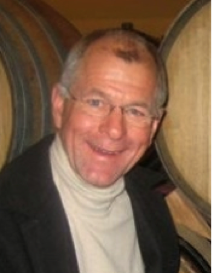 As an historian of biology, I have specialized in the history of American biology and marine biology. I have also been active in a variety of organizational and administrative functions in the history and philosophy of science. I started the Columbia History of Science Group in 1983, a regional organization. I served as Executive Secretary of the History of Science Society (1993-98) and as Editor-in-chief of History and Philosophy of the Life Sciences (2006-12). For ISHPSSB, I was the Chair of the Local Arrangements for the Seattle (1997) and then as Treasurer in 1999 (through 2007). As Treasurer, my two accomplishments were to place the Society on solid financial grounds, enabling it to expand the number of travel grants and to centralize the meeting planning, thus lowering costs while maximizing the income for the Society. The most important activity of ISHPSSB is the biennial meeting. As President, I will address two aspects of the meeting, one bureaucratic and one intellectual. First, ISHPSSB needs to control all aspects of the meeting, from the initial planning to the final implementation. With this direct involvement, the Society will be able to control costs and revenue. The meeting represents ISHPSSB’s major source of revenue and expense, so the Society’s financial stability is dependent on these controls. Second, ISHPSSB began with a commitment to interdisciplinary investigations of biology, bringing together historians, philosophers, sociologists, and biologists. These connections need to be strengthened programmatically, including links with various international communities featuring strengths in various disciplines. Focusing on these aspects of ISHPSSB’s biennial meeting will strengthen the Society’s future.
As an historian of biology, I have specialized in the history of American biology and marine biology. I have also been active in a variety of organizational and administrative functions in the history and philosophy of science. I started the Columbia History of Science Group in 1983, a regional organization. I served as Executive Secretary of the History of Science Society (1993-98) and as Editor-in-chief of History and Philosophy of the Life Sciences (2006-12). For ISHPSSB, I was the Chair of the Local Arrangements for the Seattle (1997) and then as Treasurer in 1999 (through 2007). As Treasurer, my two accomplishments were to place the Society on solid financial grounds, enabling it to expand the number of travel grants and to centralize the meeting planning, thus lowering costs while maximizing the income for the Society. The most important activity of ISHPSSB is the biennial meeting. As President, I will address two aspects of the meeting, one bureaucratic and one intellectual. First, ISHPSSB needs to control all aspects of the meeting, from the initial planning to the final implementation. With this direct involvement, the Society will be able to control costs and revenue. The meeting represents ISHPSSB’s major source of revenue and expense, so the Society’s financial stability is dependent on these controls. Second, ISHPSSB began with a commitment to interdisciplinary investigations of biology, bringing together historians, philosophers, sociologists, and biologists. These connections need to be strengthened programmatically, including links with various international communities featuring strengths in various disciplines. Focusing on these aspects of ISHPSSB’s biennial meeting will strengthen the Society’s future.
Michel Morange (France)
 Trained in biochemistry and molecular biology, I developed a very early interest in the history of the biological sciences. I was convinced that history was necessary to fully apprehend the work done in biology. My first studies were on the history of molecular biology. I have since expanded my interests, but have never renounced studying the different facets of what I consider to be a major transformation of biology. When I progressively devoted more time and effort to what was initially a hobby, one of the first international meetings that I attended was the ISH meeting of 1995 in Leuven. For the outsider that I was at the time, this was a huge support, and there is no doubt that this meeting was responsible for the increasing place that the history of biology has had in my career ever since. What I would like to do if I was elected is to bring back to the Society what it gave me. I would like to help young people to feel immediately at home in these disciplines. I would like to encourage scholars from different parts of the world who share the same interest in the study of biology to join the Society. As a young scientist, I realized how difficult it was to convince biologists that it was important for them to have a better idea of the history of their own discipline. I later had to convince historians that although I was a biologist I could do serious historical work. I discovered later that other barriers unfortunately also exist between the various disciplines in the study of biology. I would like to help break down these barriers, and I think that the ISH is the right place to do that.
Trained in biochemistry and molecular biology, I developed a very early interest in the history of the biological sciences. I was convinced that history was necessary to fully apprehend the work done in biology. My first studies were on the history of molecular biology. I have since expanded my interests, but have never renounced studying the different facets of what I consider to be a major transformation of biology. When I progressively devoted more time and effort to what was initially a hobby, one of the first international meetings that I attended was the ISH meeting of 1995 in Leuven. For the outsider that I was at the time, this was a huge support, and there is no doubt that this meeting was responsible for the increasing place that the history of biology has had in my career ever since. What I would like to do if I was elected is to bring back to the Society what it gave me. I would like to help young people to feel immediately at home in these disciplines. I would like to encourage scholars from different parts of the world who share the same interest in the study of biology to join the Society. As a young scientist, I realized how difficult it was to convince biologists that it was important for them to have a better idea of the history of their own discipline. I later had to convince historians that although I was a biologist I could do serious historical work. I discovered later that other barriers unfortunately also exist between the various disciplines in the study of biology. I would like to help break down these barriers, and I think that the ISH is the right place to do that.
For Council (select up to three):
Rachel A. Ankeny (Australia)
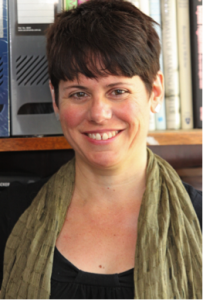 Rachel A. Ankeny is Associate Professor and Associate Dean (Research) at the University of Adelaide. She is an interdisciplinary teacher and scholar whose work in the history/philosophy of science focuses on the recent biomedical sciences, particularly genetics/genomics and clinical medicine. Her current research interests include conceptual issues relating to model organisms and the use of cases in the biomedical sciences. Rachel has a BA in Liberal Arts (Philosophy/Maths, St John's College, Santa Fe), and MA degrees in Philosophy and in Bioethics, and a PhD in the History and Philosophy of Science (all from the University of Pittsburgh). She is a co-founder and organisation committee member of the international Society for Philosophy of Science in Practice, and of the International Philosophy of Medicine Roundtable. Rachel currently serves as chair of the National Committee for History and Philosophy of Science of the Australian Academy of Sciences and is an Associate Editor for Studies in History and Philosophy of Science. Motivation: I have been active in the ISHPSSB community since 1997, and served on the Operations Committee, 2005–2007, as well as being Co-chair of the Local Arrangements committee for the biennial meeting held in Brisbane, Australia in July 2009. My motivation to serve on the ISHPSSB Council relates to my desire to contribute to a society that I highly value due to its strong sense of community and collegiality, as well as its emphasis on interdisciplinarity. Although I think ISH is extremely inclusive, I want to make more active efforts to engage sociologists and other science studies scholars who are not currently as active in the organization as are historians and philosophers, as well as continuing to promote ISH on the international scene, especially in Australia.
Rachel A. Ankeny is Associate Professor and Associate Dean (Research) at the University of Adelaide. She is an interdisciplinary teacher and scholar whose work in the history/philosophy of science focuses on the recent biomedical sciences, particularly genetics/genomics and clinical medicine. Her current research interests include conceptual issues relating to model organisms and the use of cases in the biomedical sciences. Rachel has a BA in Liberal Arts (Philosophy/Maths, St John's College, Santa Fe), and MA degrees in Philosophy and in Bioethics, and a PhD in the History and Philosophy of Science (all from the University of Pittsburgh). She is a co-founder and organisation committee member of the international Society for Philosophy of Science in Practice, and of the International Philosophy of Medicine Roundtable. Rachel currently serves as chair of the National Committee for History and Philosophy of Science of the Australian Academy of Sciences and is an Associate Editor for Studies in History and Philosophy of Science. Motivation: I have been active in the ISHPSSB community since 1997, and served on the Operations Committee, 2005–2007, as well as being Co-chair of the Local Arrangements committee for the biennial meeting held in Brisbane, Australia in July 2009. My motivation to serve on the ISHPSSB Council relates to my desire to contribute to a society that I highly value due to its strong sense of community and collegiality, as well as its emphasis on interdisciplinarity. Although I think ISH is extremely inclusive, I want to make more active efforts to engage sociologists and other science studies scholars who are not currently as active in the organization as are historians and philosophers, as well as continuing to promote ISH on the international scene, especially in Australia.
Matt Haber (USA)
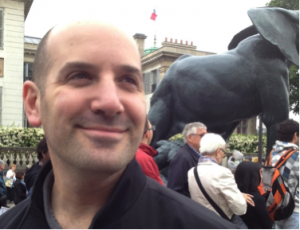 I first became active in ISHPSSB when I attended the Quinnipiac meeting (2001) as a graduate student. In 2004, along with several other then-graduate students, I helped to organize and host the first student-led Off Year Workshop (FDISH San Francisco). I have since maintained an active participation in the Society, including stints on the Education and Off-Year Workshop Committees. This culminated in 2011, when my colleague Jim Tabery and I served as the Local Organizing Committee for ISHPSSB Salt Lake City. I have always sought to introduce innovation in my leadership roles within the Society, and am excited for the opportunity to maintain that on the Council. My research focuses on taxonomy, systematics, phylogenetics, and evolutionary theory. My primary interest is in how biological theory, concepts, and practice align to generate research problems, and how, in turn, studying these problems may identify core conceptual and theoretical commitments of biology. My work has appeared in Biology & Philosophy, Philosophy of Science, and Systematic Biology, among others. ISHPSSB has been important to me and my professional development. I look forward to serving on the Council so that I may help continue that tradition for others.
I first became active in ISHPSSB when I attended the Quinnipiac meeting (2001) as a graduate student. In 2004, along with several other then-graduate students, I helped to organize and host the first student-led Off Year Workshop (FDISH San Francisco). I have since maintained an active participation in the Society, including stints on the Education and Off-Year Workshop Committees. This culminated in 2011, when my colleague Jim Tabery and I served as the Local Organizing Committee for ISHPSSB Salt Lake City. I have always sought to introduce innovation in my leadership roles within the Society, and am excited for the opportunity to maintain that on the Council. My research focuses on taxonomy, systematics, phylogenetics, and evolutionary theory. My primary interest is in how biological theory, concepts, and practice align to generate research problems, and how, in turn, studying these problems may identify core conceptual and theoretical commitments of biology. My work has appeared in Biology & Philosophy, Philosophy of Science, and Systematic Biology, among others. ISHPSSB has been important to me and my professional development. I look forward to serving on the Council so that I may help continue that tradition for others.
Maria Kronfeldner (Germany)
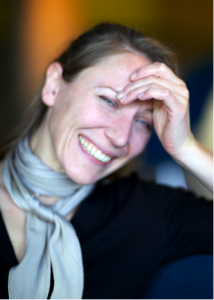 Maria Kronfeldner is currently Junior Professor for Philosophy of Science at Bielefeld University. She was a Postdoctoral Research Fellow at the Max Planck Institute for the History of Science in Berlin from 2006 to 2008 and a visiting fellow in various places, e.g. University of Pittsburgh (currently), University of Sydney, UNAM, Akademie Solitude, Harvard. She received her PhD in philosophy from the University of Regensburg (2007). Her research covers a number of topics within the history and philosophy of the life sciences: creativity, cultural evolution, genetic causation, causal complexity, nature-nurture, human nature, and classification. Her publications have appeared in major journals of the field. Motivation: My first ISHPSSB-meeting was in Vienna (2003) and I was simply delighted: It was the first time I had experienced a scholarly conference that was truly welcoming to even newbies and outsiders of the field. Sessions were international, intergenerational and interdisciplinary; there were lots of women, something I wasn’t used to at all. It was a truly exceptional opportunity to meet new colleagues, and to engage in endless, yet sincere, discussion (rather than to just show off). The meeting gave me hope that an academic career does not have to contradict the principles one otherwise cherishes. It was nonetheless clear, though, that such a great spirit does not fall out of heaven like manna. It needs active scaffolding, especially in a time when the profile, and attendance, of ISHPSSB meetings are exploding, and in a time when many things in academia are reduced to numbers and economic or career efficiency. As a member of council, I would make it my duty to help sustain the great spirit of the society.
Maria Kronfeldner is currently Junior Professor for Philosophy of Science at Bielefeld University. She was a Postdoctoral Research Fellow at the Max Planck Institute for the History of Science in Berlin from 2006 to 2008 and a visiting fellow in various places, e.g. University of Pittsburgh (currently), University of Sydney, UNAM, Akademie Solitude, Harvard. She received her PhD in philosophy from the University of Regensburg (2007). Her research covers a number of topics within the history and philosophy of the life sciences: creativity, cultural evolution, genetic causation, causal complexity, nature-nurture, human nature, and classification. Her publications have appeared in major journals of the field. Motivation: My first ISHPSSB-meeting was in Vienna (2003) and I was simply delighted: It was the first time I had experienced a scholarly conference that was truly welcoming to even newbies and outsiders of the field. Sessions were international, intergenerational and interdisciplinary; there were lots of women, something I wasn’t used to at all. It was a truly exceptional opportunity to meet new colleagues, and to engage in endless, yet sincere, discussion (rather than to just show off). The meeting gave me hope that an academic career does not have to contradict the principles one otherwise cherishes. It was nonetheless clear, though, that such a great spirit does not fall out of heaven like manna. It needs active scaffolding, especially in a time when the profile, and attendance, of ISHPSSB meetings are exploding, and in a time when many things in academia are reduced to numbers and economic or career efficiency. As a member of council, I would make it my duty to help sustain the great spirit of the society.
Alan Love (USA)
 Alan Love is Associate Professor of Philosophy at the University of Minnesota and a member of the Minnesota Center for Philosophy of Science. His areas of specialization are philosophy of biology and philosophy of science. Alan’s research focuses on a variety of conceptual issues in evolutionary and developmental biology with an emphasis on philosophical questions about conceptual change, explanatory pluralism, the structure of evolutionary theory, reductionism, the nature of historical science, and interdisciplinary epistemology. He earned his PhD in 2005 from the HPS department at the University of Pittsburgh and also holds Master’s degrees in Philosophy (Pittsburgh) and Biology (IU-Bloomington). Alan has been an ISHPSSB member since 2003. He is one of the founding editors of Philosophy & Theory in Biology (a peer-reviewed, online, open-access journal), is on the Steering Committee of &HPS (Integrated History and Philosophy of Science), and is a member of the editorial boards for Bioscience, Journal of Experimental Zoology (Mol Dev Evol), and Metascience. One of his primary motivations in running for the ISHPSSB council is to help the society both maintain and stimulate a healthy, multidisciplinary balance of history of biology, philosophy of biology, and sociology of biology. Homepage.
Alan Love is Associate Professor of Philosophy at the University of Minnesota and a member of the Minnesota Center for Philosophy of Science. His areas of specialization are philosophy of biology and philosophy of science. Alan’s research focuses on a variety of conceptual issues in evolutionary and developmental biology with an emphasis on philosophical questions about conceptual change, explanatory pluralism, the structure of evolutionary theory, reductionism, the nature of historical science, and interdisciplinary epistemology. He earned his PhD in 2005 from the HPS department at the University of Pittsburgh and also holds Master’s degrees in Philosophy (Pittsburgh) and Biology (IU-Bloomington). Alan has been an ISHPSSB member since 2003. He is one of the founding editors of Philosophy & Theory in Biology (a peer-reviewed, online, open-access journal), is on the Steering Committee of &HPS (Integrated History and Philosophy of Science), and is a member of the editorial boards for Bioscience, Journal of Experimental Zoology (Mol Dev Evol), and Metascience. One of his primary motivations in running for the ISHPSSB council is to help the society both maintain and stimulate a healthy, multidisciplinary balance of history of biology, philosophy of biology, and sociology of biology. Homepage.
Erika Milam (USA)
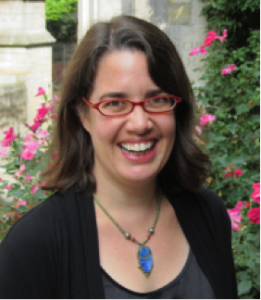 Erika Milam is an Associate Professor of History at Princeton University. She was in the process of pursuing a Ph.D. in Ecology & Evolutionary Biology at the Univeristy of Michigan when she discovered the wonders of the history of biology. She quickly switched gears and earned her Ph. D. instead in the History of Science, at the University of Wisconsin. She held a postdoctoral fellowship at the Max Planck Institute for the History of Science in Berlin and, before starting at Princeton, also worked at Clemson University and the University of Maryland. Her research and teaching interests include the history of evolutionary theory and animal behavior, gender and science, and (if you insist) the history of science through science fiction. She fondly remembers her first ISHPSSB meeting during the hot summer of 2003 in Vienna, where she presented the preliminary results of her dissertation research for the first time. She values ISHPSSB as an interdisciplinary community that welcomes both established scholars and newcomers.
Erika Milam is an Associate Professor of History at Princeton University. She was in the process of pursuing a Ph.D. in Ecology & Evolutionary Biology at the Univeristy of Michigan when she discovered the wonders of the history of biology. She quickly switched gears and earned her Ph. D. instead in the History of Science, at the University of Wisconsin. She held a postdoctoral fellowship at the Max Planck Institute for the History of Science in Berlin and, before starting at Princeton, also worked at Clemson University and the University of Maryland. Her research and teaching interests include the history of evolutionary theory and animal behavior, gender and science, and (if you insist) the history of science through science fiction. She fondly remembers her first ISHPSSB meeting during the hot summer of 2003 in Vienna, where she presented the preliminary results of her dissertation research for the first time. She values ISHPSSB as an interdisciplinary community that welcomes both established scholars and newcomers.
Andrew Reynolds (Canada)
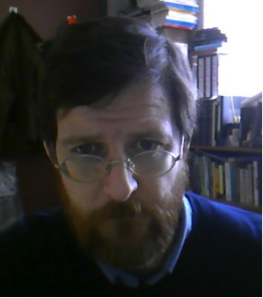 Andrew S. Reynolds is Associate Professor in the Department of Philosophy and Religious Studies at Cape Breton University in Sydney, Nova Scotia, Canada. I did my PhD in Philosophy of Science at the University of Western Ontario (1997) followed by a postdoctoral fellowship at Harvard University (1998-99). My research has recently dealt with the history and philosophy of cell theory and cell biology. I became an ‘ISH’ member in 2003, and have attended and presented at each meeting since, with the exception of Brisbane in 2009. At the 2011 Salt Lake City meeting I organized with Hannah Landecker a full day session on cell communication and cell signaling which had 10 speakers from three separate countries representing the disciplines of biology, history, philosophy, and sociology. Having just finished a 3 year term as secretary and treasurer of the Canadian Society for the History and Philosophy of Science (2009-2012), I would be very happy to serve on council and to help expand the ISHPSSB’s reputation as the venue for multi-disciplinary and international collaborations for the study of biology.
Andrew S. Reynolds is Associate Professor in the Department of Philosophy and Religious Studies at Cape Breton University in Sydney, Nova Scotia, Canada. I did my PhD in Philosophy of Science at the University of Western Ontario (1997) followed by a postdoctoral fellowship at Harvard University (1998-99). My research has recently dealt with the history and philosophy of cell theory and cell biology. I became an ‘ISH’ member in 2003, and have attended and presented at each meeting since, with the exception of Brisbane in 2009. At the 2011 Salt Lake City meeting I organized with Hannah Landecker a full day session on cell communication and cell signaling which had 10 speakers from three separate countries representing the disciplines of biology, history, philosophy, and sociology. Having just finished a 3 year term as secretary and treasurer of the Canadian Society for the History and Philosophy of Science (2009-2012), I would be very happy to serve on council and to help expand the ISHPSSB’s reputation as the venue for multi-disciplinary and international collaborations for the study of biology.
María Jesús Santesmases (Spain)
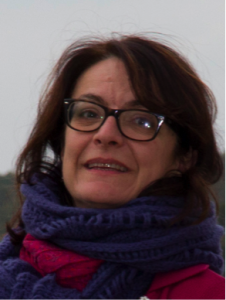 I began my academic career as a PhD student in organic chemistry at the Universidad Complutense (Madrid, Spain). After a brief postdoctoral period, I began to work in the media and for the Spanish administration. Later, I moved into the history of 20th-century biology with a project on the early biochemists and molecular biologists in Spain. My current research is on the history of penicillin in Spain and on the early days of cytogenetics in the clinic. For me, participating on the Council would contribute to meeting precisely the same objectives as for joining the society itself. I always come to the ISHPSSB meetings to see colleagues and discuss topics with them, to check my approaches so I can expand my views so they won’t be too local, nor too global. I am here to listen more than to talk, although I use to present at every meeting. In ISHPSSB, all of us learn about new projects, new objects, new ways of distributing recognition, and we gather with the founders and also with new members both in Europe and the Americas. With the certainty that we are transferring to our stories the cultures of our own time, I situate myself among a group of colleagues who show each other ways of moving in and out of our own projects so as not to get lost among uncertainties.
I began my academic career as a PhD student in organic chemistry at the Universidad Complutense (Madrid, Spain). After a brief postdoctoral period, I began to work in the media and for the Spanish administration. Later, I moved into the history of 20th-century biology with a project on the early biochemists and molecular biologists in Spain. My current research is on the history of penicillin in Spain and on the early days of cytogenetics in the clinic. For me, participating on the Council would contribute to meeting precisely the same objectives as for joining the society itself. I always come to the ISHPSSB meetings to see colleagues and discuss topics with them, to check my approaches so I can expand my views so they won’t be too local, nor too global. I am here to listen more than to talk, although I use to present at every meeting. In ISHPSSB, all of us learn about new projects, new objects, new ways of distributing recognition, and we gather with the founders and also with new members both in Europe and the Americas. With the certainty that we are transferring to our stories the cultures of our own time, I situate myself among a group of colleagues who show each other ways of moving in and out of our own projects so as not to get lost among uncertainties.
For Secretary:
Anya Plutynski (USA)
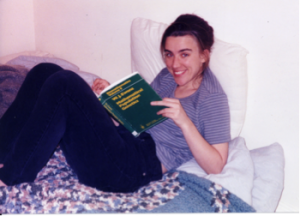 Anya Plutynski is an Associate Professor of Philosophy at the University of Utah. Her research is in the history and philosophy of biology. Currently, she is working on a book on cancer and explanation. Her interests in continuing to serve ISHPSSB are mainly to help facilitate communication and the environment of mentoring and support which has brought so many young scholars into successful careers in history, philosophy and the social studies of biology.
Anya Plutynski is an Associate Professor of Philosophy at the University of Utah. Her research is in the history and philosophy of biology. Currently, she is working on a book on cancer and explanation. Her interests in continuing to serve ISHPSSB are mainly to help facilitate communication and the environment of mentoring and support which has brought so many young scholars into successful careers in history, philosophy and the social studies of biology.
For Treasurer:
Laura Perini (USA)
 Laura Perini is an assistant professor in the Department of Philosophy at Pomona College, and chairs the Science, Technology, and Society program at the Claremont Colleges. She has a master’s degree in Biology from the University of California at Los Angeles, and received her PhD in Philosophy from the University of California, San Diego in 2002. She studies visual representation in science, focusing on the use of images in the life sciences. Personal motivation: I have benefitted greatly from the interdisciplinarity and open, friendly atmosphere of ISHPSSB meetings, and I welcome the opportunity to make a contribution to the Society in return.
Laura Perini is an assistant professor in the Department of Philosophy at Pomona College, and chairs the Science, Technology, and Society program at the Claremont Colleges. She has a master’s degree in Biology from the University of California at Los Angeles, and received her PhD in Philosophy from the University of California, San Diego in 2002. She studies visual representation in science, focusing on the use of images in the life sciences. Personal motivation: I have benefitted greatly from the interdisciplinarity and open, friendly atmosphere of ISHPSSB meetings, and I welcome the opportunity to make a contribution to the Society in return.
For Program Co-chairs:
Mark Borrello (USA)
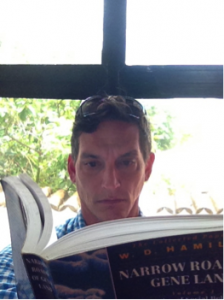 I am an associate professor in the Program in the History of Science, Technology and Medicine at the University of Minnesota. My work has focused on the evolutionary theory in the 19th and 20th centuries particularly on the levels of selection. More recently I have been collaborating with some biologists on the evolution of individuality and am developing historical projects around this idea. Motivation: I gave my first professional talk at ISHPSSB as a graduate student in Oaxaca, Mexico in 1999. Since then I haven’t missed a meeting except Vienna 2003 when my son Nico was born. I have served on the education committee, chaired the off-year workshop committee so it seems time to work on the program. I am committed to maintaining and increasing the interdisciplinarity that has characterized ISH since its beginnings.
I am an associate professor in the Program in the History of Science, Technology and Medicine at the University of Minnesota. My work has focused on the evolutionary theory in the 19th and 20th centuries particularly on the levels of selection. More recently I have been collaborating with some biologists on the evolution of individuality and am developing historical projects around this idea. Motivation: I gave my first professional talk at ISHPSSB as a graduate student in Oaxaca, Mexico in 1999. Since then I haven’t missed a meeting except Vienna 2003 when my son Nico was born. I have served on the education committee, chaired the off-year workshop committee so it seems time to work on the program. I am committed to maintaining and increasing the interdisciplinarity that has characterized ISH since its beginnings.
And
Rob Wilson (Canada)
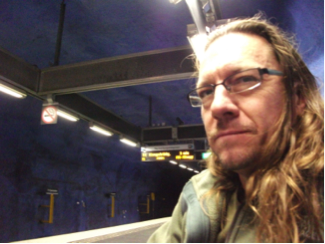 I began my career in the philosophy of mind and cognitive science, and started working in the philosophy of biology only after teaching for a few years at Queen's University, Canada. Both PSA and ISH have been natural professional societies for me both to extend my knowledge of empirically-sensitive philosophical work in the biological sciences and to test out some new ideas. With my growing interests in the past 5-10 years in applications of biological knowledge to shape our species--eugenics, biotechnology, transhumanism, disability--ISH meetings have provided unparalleled opportunities to learn from a broad range of folks genuinely interested in working across our disciplinary boundaries on these kinds of topics. It would be an honour to serve as a program co-chair for the upcoming 2015 meeting and to contribute to the organization in this small way. I received my BA from the University of Western Australia in 1986, and after teaching philosophy with children and working as a computer programmer (sort of), my MA and Ph.D. in philosophy from Cornell University in 1990 and 1992, respectively. I have been a professor in the Department of Philosophy at the University of Alberta, Canada, since July 2000, having taught previously at both Queen's and the University of Illinois, Urbana-Champaign. I have been the Director of Philosophy for Children Alberta since 2008, and around that same time founded the What Sorts Network, an international network of more than 60 researchers and community members anchored in Canada. I currently direct the Community-University Research Alliance (CURA) project, Living Archives on Eugenics in Western Canada, which is working to provide a survivor-sensitive "living archives" on the history of eugenics in Western Canada and its contemporary significance. There's more stuff about me at my webpage.
I began my career in the philosophy of mind and cognitive science, and started working in the philosophy of biology only after teaching for a few years at Queen's University, Canada. Both PSA and ISH have been natural professional societies for me both to extend my knowledge of empirically-sensitive philosophical work in the biological sciences and to test out some new ideas. With my growing interests in the past 5-10 years in applications of biological knowledge to shape our species--eugenics, biotechnology, transhumanism, disability--ISH meetings have provided unparalleled opportunities to learn from a broad range of folks genuinely interested in working across our disciplinary boundaries on these kinds of topics. It would be an honour to serve as a program co-chair for the upcoming 2015 meeting and to contribute to the organization in this small way. I received my BA from the University of Western Australia in 1986, and after teaching philosophy with children and working as a computer programmer (sort of), my MA and Ph.D. in philosophy from Cornell University in 1990 and 1992, respectively. I have been a professor in the Department of Philosophy at the University of Alberta, Canada, since July 2000, having taught previously at both Queen's and the University of Illinois, Urbana-Champaign. I have been the Director of Philosophy for Children Alberta since 2008, and around that same time founded the What Sorts Network, an international network of more than 60 researchers and community members anchored in Canada. I currently direct the Community-University Research Alliance (CURA) project, Living Archives on Eugenics in Western Canada, which is working to provide a survivor-sensitive "living archives" on the history of eugenics in Western Canada and its contemporary significance. There's more stuff about me at my webpage.
Electronic voting and the election process
In 2011, electronic voting was conducted through SurveyMonkey.com under the management of Jim Griesemer. This time we decided to move to the IT support at the Ecology Research Institute from the UNAM, to operate a secure, anomymous, electronic election.
The procedure for voting is that each member in the members’ database will receive an email invitation that looks like the one below, which was sent to me during a test of the system. Those in the members’ database will receive the invitation containing a link to the poll that is tied to the member’s email address from Ana Barahona E. (
We expect to send the listserv notification of the voting dates for the election in the second week of April. The poll will be open for two months, Mid-April to Mid-June. The results will be tallied and presented to the membership during the Members’ Meeting at the Montepellier conference in July, 2013.
If you have rigorous spam filters set for your email account, you should make sure you do not filter out email from me, Ana Barahona E. (
The ballot fits on one page. You will check boxes for candidates following the instructions. When you are finished selecting candidates, you click the ‘vote’ button at the bottom of the page, which will take you to a ‘revision’ window. If you click ‘No’, it will take you back to the voting page where you can change your votes. If you click ‘Yes’, you will complete and submit your votes and will then be locked out of the site until voting is complete.
Sample invitation:
As a registered member of ISHPSSB, you are entitled to vote in the 2013 election ofofficers. Please complete the on-line election by clicking on the link below and followingthe instructions.
Heres is a link to the election page:
http://XXXX
login: your email addressPassword: YYYY
This link is uniquely tied to this survey and your e-mail address. Please do not forwardthis message.
Thanks for you participation!
If the link is not "clickable", simply copy and paste the link into the address line of your Web browser (e.g. Firefox, Internet Explorer).
Note: In voting for Council, members choose three of the seven candidates.
